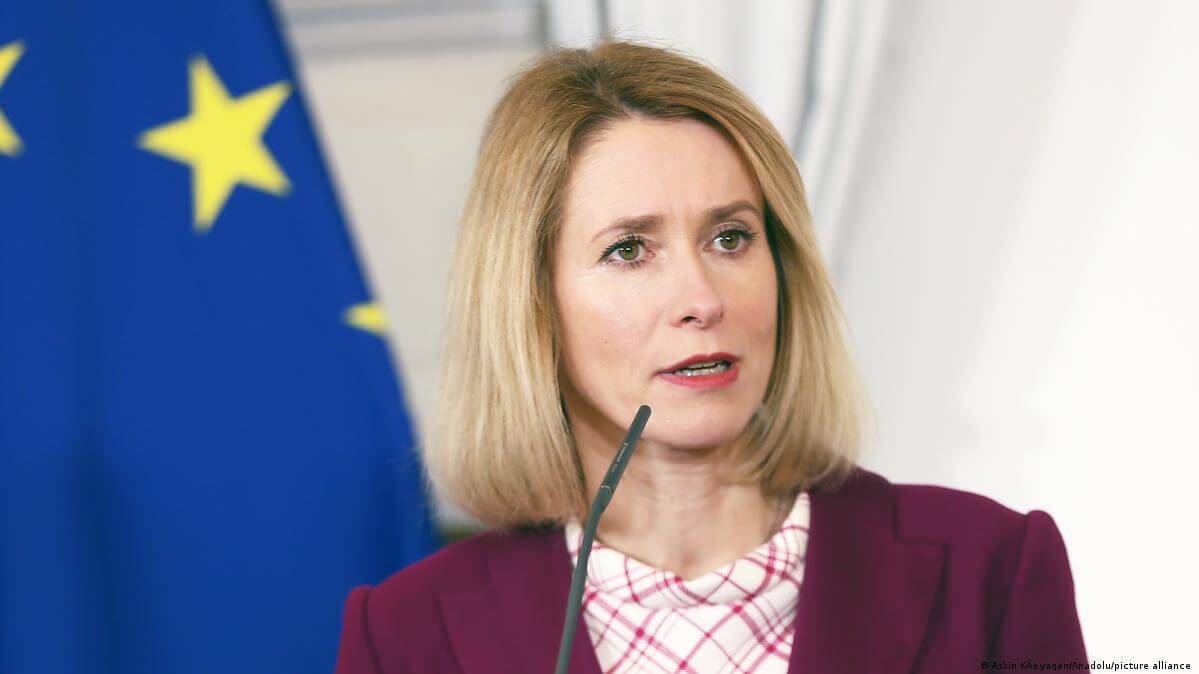On Monday, Russia added Estonian PM Kaja Kallas, Lithuania’s culture minister, and members of the previous Latvian parliament to a wanted list for destroying Soviet-era monuments. The list was updated in the Russian Interior Ministry’s database.
Kremlin spokesperson Dmitry Peskov stated that Kallas was wanted for “desecration of historical memory.”
Estonian PM on Russia’s Wanted List
Russian law enforcement sources told the state agency TASS that criminal proceedings have been begun against Baltic officials for destroying and damaging Soviet army monuments. “These people are responsible for decisions that are actually tantamount to desecration of historical memory,” Peskov stressed. Baltic politicians are also “taking hostile actions towards both historical memory and our country,” he added.
Russian Foreign Ministry spokesperson Maria Zakharova stated that this is only the start. “Crimes against the memory of the world's liberators from nazism and fascism must be prosecuted,” she added.
Since Russia invaded Ukraine in February 2022; Estonia, Latvia, and Lithuania have demolished the majority of their Soviet-era monuments, including those commemorating Soviet soldiers killed during World War II. The Baltic states were captured by the Soviet Union in 1940, then occupied by Nazi Germany before returning to Moscow’s control as members of the Soviet Communist bloc until 1991, when the Soviet Union collapsed and they regained independence.
Russia puts leader of NATO member Estonia on wanted list over removal of Soviet-era monuments https://t.co/EY46RktwsP
— The Associated Press (@AP) February 13, 2024
Estonia Supports Ukraine
The move to demolosih Soviet-era monumnets has intensified since Russia invaded Ukraine. In fact, PM Kallas has pledged to remove all communist monuments in public places.
“Soviet monuments must be removed from public spaces and we will do it as quickly as possible,” Kallas declared in the summer of 2022 after officials dismantled a Soviet tank memorial from Narva, a primarily Russian-speaking city near the Russian border.
Reports indicate that the Estonian PM has been a staunch supporter of Ukraine, advocating efforts to enhance military assistance to the country and tighten sanctions on Russia. Kallas described Russia’s move as “nothing surprising.” “The Kremlin now hopes this move will help to silence me and others – but it won’t. The opposite. I will continue my strong support for Ukraine. I will continue to stand for increasing Europe’s defence,” she wrote on X.
Earlier, Kallas claimed, “Estonia and I remain steadfast in our policy: supporting Ukraine, bolstering European defence, and fighting against Russian propaganda.” “This hits close to home for me: My grandmother and mother were once deported to Siberia, and it was the KGB who issued the fabricated arrest warrants," she added, citing her family’s background of Soviet repression.
Meanwhile, Estonia’s foreign intelligence service said on Tuesday that Russia planned to double the number of troops stationed along its border with the Baltic nations and Finland in preparation for a possible military conflict with NATO within the next ten years.
The Kremlin now hopes this move will help to silence me and others – but it won't.
— Kaja Kallas (@kajakallas) February 13, 2024
The opposite. I will continue my strong support to Ukraine. I will continue to stand for increasing Europe's defence. 3/
Estonia’s Intelligence Report
Estonia’s Foreign Intelligence Service warned in a report that the number of Russian troops in the country’s proximity might double from 19,000 (pre-2022 figure) as Russia pursues major military reforms. “These ambitious reforms are planned to be implemented over three to four years and are being presented as a response to NATO’s expansion,” the report said.
In early 2024, Russia established the Leningrad and Moscow Military Districts to replace the Western Joint Strategic Command. “This shift likely aims to bolster Russia’s military posture towards Finland after its accession to NATO,” it added.
The report indicates that the Russian military may not be inferior to NATO forces in terms of electronic warfare and long-range strike capabilities, echoing a German NATO commander's warning that the alliance should be prepared for the possibility of Russian missile strikes in Europe in the event of an all-out conflict with Russia.
The Estonian intelligence report warned that defending against a “possible conventional attack from such an army” would necessitate NATO and Western defence industries being “significantly more prepared, capable, and better-stocked with ammunition” than current levels.
“We can expect that within the next decade, NATO will face a Soviet-style mass army that, while technologically inferior to the allies, poses a significant threat due to its size, firepower, and reserves,” said Kaupo Rosin, Estonia’s Foreign Intelligence Service director.

